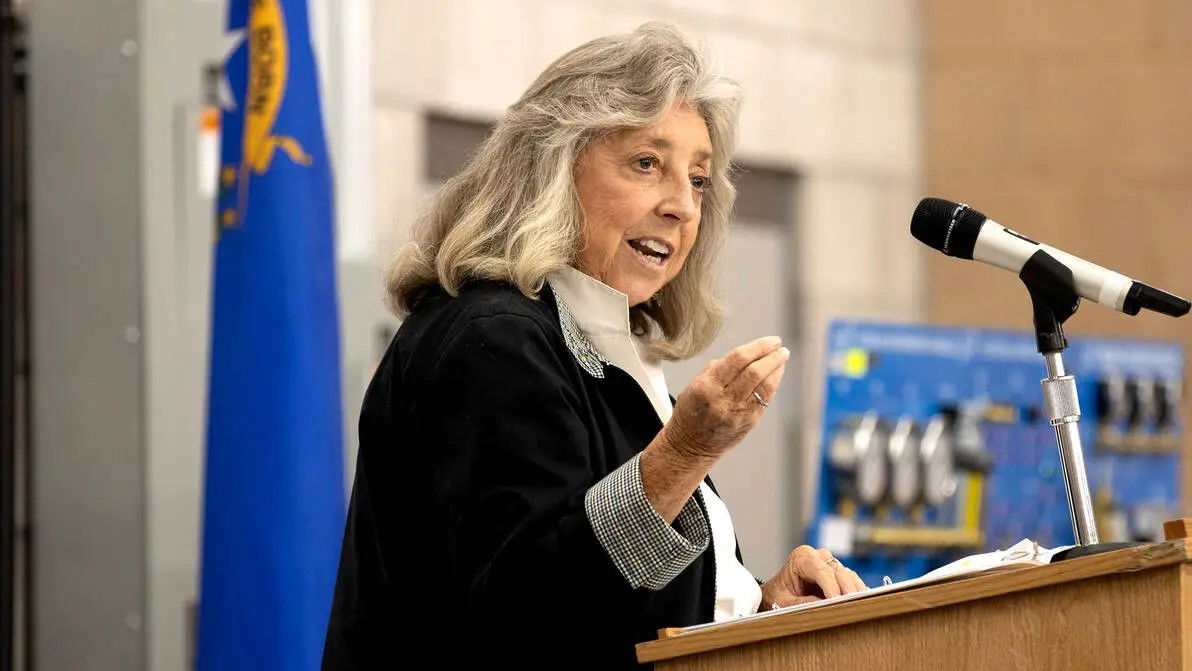Rep. Dina Titus pushes to repeal new gambling tax rule, warns of shift to unregulated markets

U.S. Rep. Dina Titus gathered industry leaders, professional gamblers, and community members at Las Vegas City Hall on Monday evening to rally support for her effort to overturn a recent federal change to gambling tax rules. The provision, part of the sweeping federal budget package known as the One Big Beautiful Bill, limits the deduction for gambling losses to 90 percent of winnings instead of the previous 100 percent.
The change, added late in the legislative process, was intended to help offset other tax cuts and is projected by the Joint Committee on Taxation to raise about $1.1 billion over the next decade.
Titus, a Democrat representing Nevada’s 1st Congressional District, has introduced the FAIR BET Act, short for Fair Accounting for Income Realized from Betting Earnings Taxation, to reverse the change. She told attendees the measure is about fairness, warning that the proposed federal change risks driving bettors to offshore, unregulated operators to shield their winnings and losses from the IRS.
“You always have to look through legislation for things that impact gaming… there’s always a little bit of a prejudice against gaming that we have to be on the lookout for,” she said. “So when the bill came back, we had to go line by line, and sure enough, there was one in there.”
An expert panel joined Titus to discuss the potential fallout. Adam Robinson of American Bettors’ Voice called the cap “fundamentally a fairness issue,” arguing it taxes players on “phantom income.” He added: “A lot of livelihoods depend on fair taxation of gaming… that’s not how this country is supposed to run.”
Becky Harris, a gaming policy expert at the University of Nevada, Las Vegas; Russell Fox, a tax specialist at Clayton Financial; and Virginia Valentine of the Nevada Resorts Association also shared their views and fielded audience questions. Many attendees, about 80 percent of whom were professional gamblers, expressed skepticism about the repeal bill’s prospects in Congress.
Fox described the 10 percent loss deduction limit as “stupid,” noting that it could push bettors into higher tax brackets than their actual income justifies and erode the market for high-stakes “whale” sports bettors, a group that can be crucial for sportsbooks’ survival.
Panelists and audience members alike raised concerns that the policy could lead more gamblers to seek out offshore or otherwise unregulated markets. Robinson warned that without fair rules, the U.S. market risks losing players.
“If you want to win the market as an American regulated, you have to give the players an environment that rewards playing in a regulated market, and this unfortunately does the exact opposite,” he said.
Kevin, a professional gambler from New Jersey who traveled to Las Vegas for the meeting, said the rule could end his career. “I might have to change my entire career, or… go offshore, or an extreme example, leave the country,” he said.
Titus’ bill has bipartisan sponsorship, but she acknowledged that additional co-sponsors are needed. She pledged to continue fighting the provision, stressing the importance of protecting Nevada’s regulated gambling industry. “It’s a very simple change, but has a great deal of impact,” she said.
















